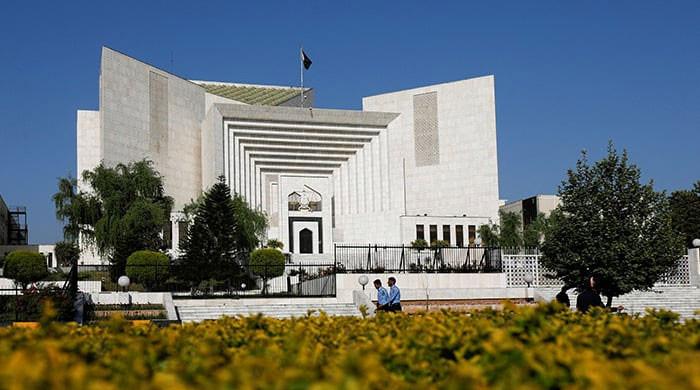
- Provisions of Army Act declared not inherently unconstitutional.
- Court says lack of civilian appeal requires urgent legislation.
- International law cited to stress fairness and appellate rights.
ISLAMABAD: The Supreme Court has ruled that while the Army Act provides formal due process protections, it remains constitutionally incomplete in its application to civilians due to the absence of an independent right of appeal in civilian courts.
In May 2025, the SC’s constitutional bench gave its go-ahead for civilians to be tried in military courts. The apex court, in its short order, had delivered the verdict with a 5-2 majority. Justices Jamal Khan Mandokhail and Naeem Akhtar Afghan dissented.
The case pertains to the military trials and the subsequent sentencing of civilians for their role in attacks on army installations during the riots that followed Pakistan Tehreek-e-Insaf (PTI) founder Imran Khan’s arrest on May 9, 2023.
In its detailed order issued on Monday, the apex court noted that the provisions of the Pakistan Army Act, 1952, were “not inherently unconstitutional,” but underscored that the lack of a statutory right of appeal to the High Courts required legislative intervention.
The court referred the matter to parliament, directing the government and lawmakers to enact suitable amendments in the Army Act and allied rules within 45 days.
It stressed that the amendments must establish an independent appellate forum for civilians convicted by Court Martial or Military Courts under offences specified in Section 2(1)(d)(i) and (ii), read with Section 59(4) of the Act.
The bench further observed that such institutional deference to parliament was necessary and expressed the expectation that the legislature would accord due respect to its directions while safeguarding civilian rights in the military justice framework.
Citing international law, including Article 14 of the International Covenant on Civil and Political Rights (ICCPR), the court held that military tribunals are not inherently unconstitutional, provided they afford minimum guarantees of fairness, particularly an independent appellate process.
The court rejected the argument that military courts violate Article 175(3) of the Constitution, which deals with separation of judiciary from executive. It said military courts operate under a distinct constitutional and statutory pathway, are limited in scope, and do not usurp the jurisdiction of ordinary courts.
While acknowledging that sections 133 and 133-B of the Army Act provide internal avenues of appeal, the court found them inadequate for civilians. It held that, in light of Pakistan’s constitutional evolution and obligations under international treaties such as the ICCPR, an independent statutory right of appeal to the High Courts is necessary.
The judgment also recorded that during proceedings, the attorney general had sought time from the bench to consult the government on introducing an independent right of appeal for civilians tried under the Army Act. He assured the court that any recommendation for statutory reform would be respected and seriously considered.
Earlier in May, Justice Mandokhail and Justice Afghan dissented from the majority view, rejecting the appeals in a separate order and upholding the earlier judgment that had invalidated military trials of civilians.
That ruling, delivered on October 23, 2023, by a five-member bench headed by Justice Ijazul Ahsan and comprising Justices Munib Akhtar, Yahya Afridi, Mazahar Ali Akbar Naqvi, and Ayesha Malik, had declared such trials unconstitutional by a 4-1 majority.
While the bench unanimously agreed that the cases of May 9 suspects should be heard by criminal courts, the majority decision had struck down Section 2(1)(d)(i), Section 2(1)(d)(ii), and Section 59(4) of the Pakistan Army Act, 1952.
Later, the constitutional bench constituted under the 26th Amendment restored those provisions of the Army Act.
May 9 riots
The May 9, 2023, events refer to the riots that were triggered by the arrest of PTI founder Khan from the premises of Islamabad High Court (IHC) in a graft case.
During the protests, the miscreants targeted the civil and military installations, including the Corps Commander’s House in Lahore and the General Headquarters (GHQ) in Rawalpindi.
Several PTI leaders and workers were released on bail after their arrests, while many still remain behind bars.
The deposed prime minister, who was ousted from power via the opposition’s no-confidence motion in April 2022, has been has been behind bars since August 2023 after he was booked in dozens of cases ranging from corruption to terrorism since his removal as premier.
Discover more from Brackly News
Subscribe to get the latest posts sent to your email.



